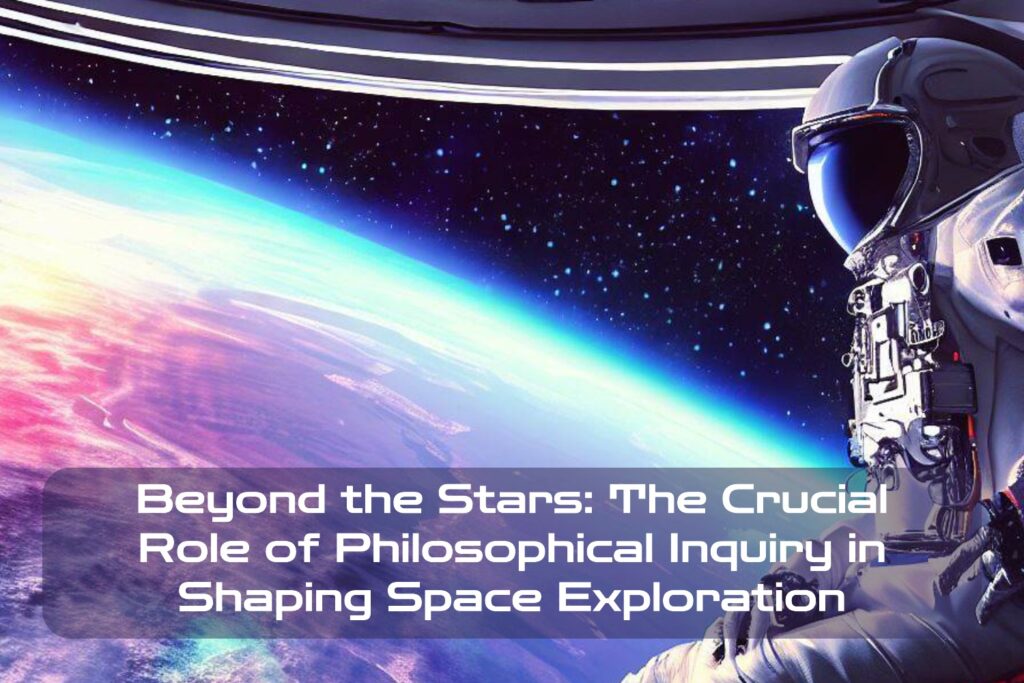From historic explorations in the age of discovery to today’s modern technological advancements, humanity has always been driven by a relentless curiosity and the desire to explore new frontiers. Space exploration is no exception.
It has captured the imagination of people worldwide since humans first set foot on the moon in 1969. With each passing year, space agencies around the world continue to push boundaries and expand our knowledge of the universe.
Space exploration is not just about satisfying human curiosity or making groundbreaking scientific discoveries; it also plays a crucial role in shaping our future as a species. As Earth’s resources become increasingly scarce and environmental concerns grow, space exploration offers an unprecedented opportunity to find new home worlds, exploit available resources beyond our planet, and develop technologies that contribute positively to sustainable development on Earth.
The Role of Philosophical Inquiry in Space Exploration
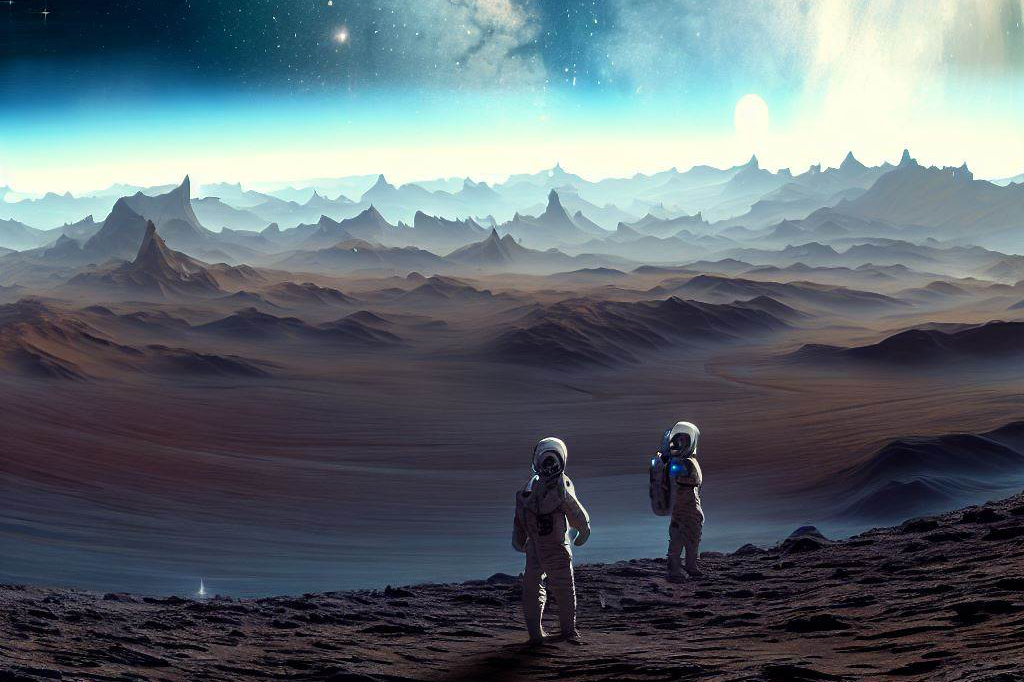
The benefits of space exploration are clear, but it raises pressing questions that need to be resolved before we can advance further into the unknown. Such questions include:
- What ethical considerations must be taken into account when exploring other planets?
- How do we balance scientific progress with environmental concerns?
- How should we approach potential interactions with alien life forms?
Philosophical inquiry can help us answer these difficult questions by offering new insights into how we approach and address them.
It encourages us to think critically about our assumptions, beliefs, values, and biases regarding space exploration. In the upcoming sections of this article, we will explore how philosophical inquiry can help us refine our ideas about space exploration and lead us towards more informed decision-making regarding ethical issues surrounding space travel while also inspiring innovative ideas that will shape humanity’s future ambitions for galactic exploration.
The Value of Critical Thinking in Shaping Space Exploration
The Importance of Asking the Right Questions

When it comes to exploring space, it’s easy to get caught up in the excitement of discovery and adventure. However, it’s important that we don’t lose sight of our goals and purpose.
By asking the right questions, we can ensure that our efforts are focused on achieving meaningful progress.
For example, instead of just asking, “What can we find out there?” we could ask, “How can we improve life here on Earth through space exploration?”
This kind of critical thinking helps us stay mindful of our priorities and objectives.
Analyzing Assumptions and Biases in Space Exploration
As human beings, we all bring certain assumptions and biases with us when approaching any task or problem. In space exploration, these assumptions and biases can be particularly dangerous if left unchecked.
For example, if we assume that life on other planets must be similar to life on Earth, we may overlook important discoveries or fail to recognize new forms of life altogether. By analyzing our assumptions and biases, we can begin to see things from a new perspective and make more informed decisions.
Evaluating Evidence and Arguments in Space Exploration

In order to make progress in space exploration, it’s critical that we evaluate evidence and arguments carefully. This means being open-minded but also skeptical about claims made regarding space exploration discoveries. Scientists must adhere to strict protocols for evaluating evidence before making any announcements about their findings.
We should all hold ourselves accountable for similar scrutiny before accepting any claims as fact without proper evaluation first. Critical thinking is an essential tool for shaping the future trajectory of space exploration efforts.
By deliberately asking careful questions rather than merely following excitement or preconceptions for what gets attention from media outlets or investors, – and by analyzing assumptions & biases as well as evaluating evidence – we can ensure that our efforts are focused on achieving meaningful progress. Only by doing so can we find ways to improve our own lives and the lives of generations to come.
Philosophical Inquiry and Ethical Considerations in Space Exploration
Examining ethical issues surrounding space exploration: The search for a moral compass
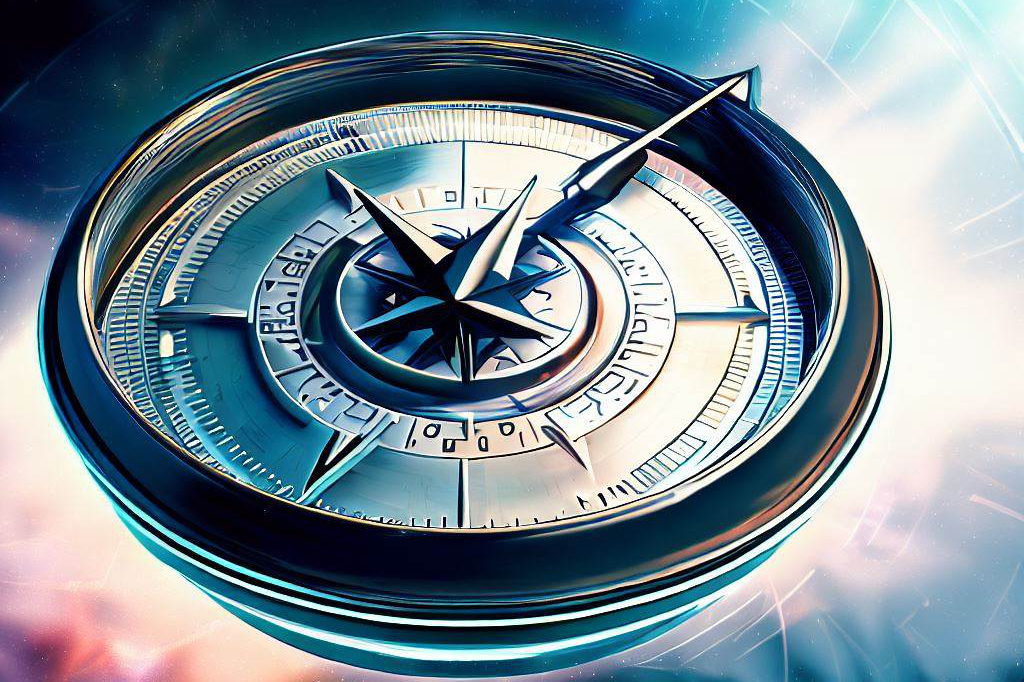
Space exploration poses numerous ethical dilemmas, from the use of animals in scientific experiments to the exploitation of resources on other planets.
Philosophical inquiry is crucial to addressing these challenges and providing guidance on how to proceed.
The question at the heart of such inquiries is what principles should guide our actions as we explore space? Should we prioritize scientific progress over ethical considerations, or should we take a more cautious approach and err on the side of caution?
These are complex questions that require careful consideration.
One example of an ethical concern in space exploration is the use of animals in scientific experiments.
While animal research has played a vital role in medical breakthroughs, it raises serious concerns about animal welfare. Philosophers have argued that we must weigh these concerns against the potential benefits of such research, asking whether alternative methods could achieve similar results without harming animals.
Balancing scientific progress with ethical considerations: A delicate dance

Another key issue when it comes to space exploration is striking a balance between scientific progress and ethics. On the one hand, there is an understandable desire among scientists to push boundaries and explore new frontiers.
On the other hand, it’s important to ensure that these advances are made with consideration for potential consequences – both for people on Earth and for those who may be affected by our actions elsewhere.
This requires thoughtful engagement from all stakeholders involved in space exploration – including scientists, policymakers, and members of society – to establish guidelines that promote responsible behavior while still allowing for meaningful progress.
Addressing concerns about the impact of space exploration on society and the environment: Beyond our planet
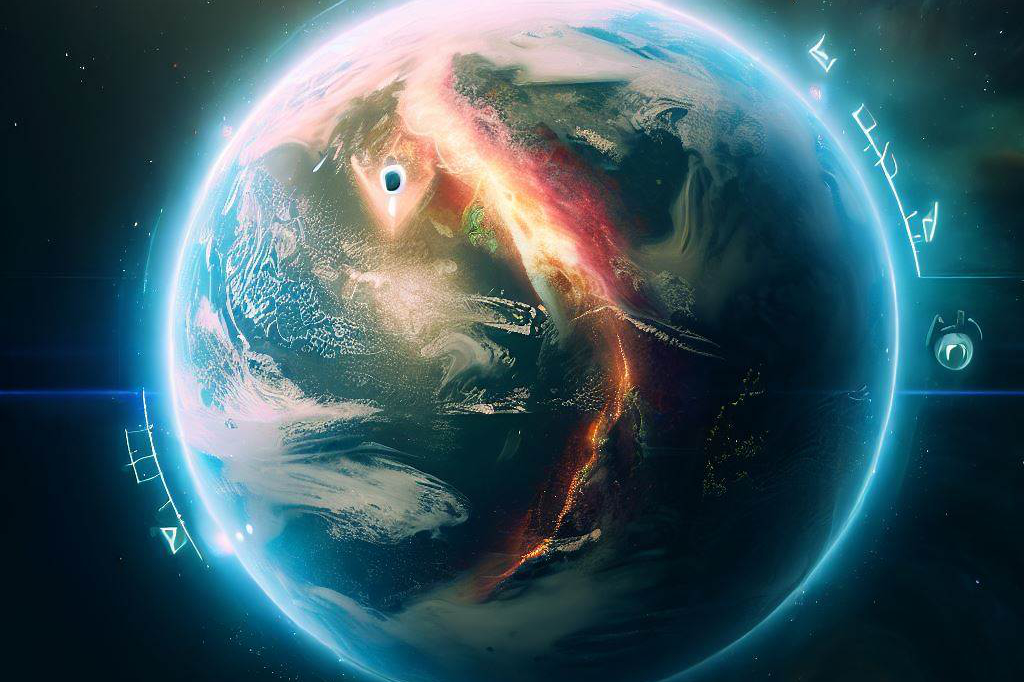
There are broader concerns surrounding space exploration’s impact on society and the environment.
Critics argue that a focus on space exploration detracts from more pressing issues on Earth, such as climate change and social inequality.
They also question whether the pursuit of space exploration is worth the resources and risks involved. Philosophical inquiry can help address these concerns by asking deeper questions about the meaning and value of space exploration.
For example, what does exploring other planets tell us about ourselves? How does this knowledge impact our understanding of our place in the universe?
And ultimately, what kind of society do we want to build – one that prioritizes technological progress at all costs or one that seeks to balance progress with ethics and values?
These are big questions that require careful consideration – but they’re ones we can’t afford to ignore.
Philosophical Inquiry and the Future of Space Exploration
Considering the long-term implications of space exploration
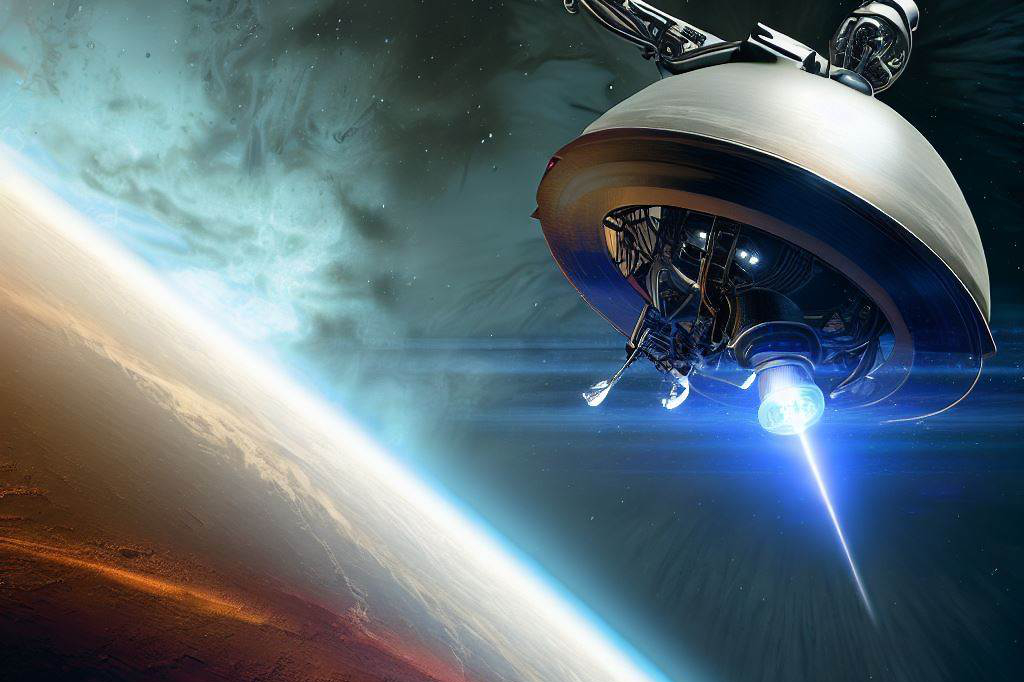
The long-term implications of space exploration are complex and far-reaching.
While space exploration can provide valuable insights into our universe, it also carries risks and potential consequences that must be carefully considered.
For example, the debris from space missions can accumulate and pose a threat to future missions.
Additionally, the use of nuclear power in spacecraft raises concerns about nuclear contamination in space. Moreover, the impact of space exploration on society is also a critical aspect to consider in terms of its long-term implications.
As we explore other planets and moons, we may encounter alien life forms or resources that could completely change the course of humanity’s future. It is necessary to assess how such discoveries could affect our society, culture, and values.
Exploring alternative approaches to space exploration

As we continue to explore our universe, it is important to consider alternative approaches that may be more sustainable, ethical, or effective than current practices.
One such approach is interplanetary robotics, – using robots instead of humans for certain tasks like mining resources or conducting scientific experiments on other planets. This would not only reduce human risk but also lower the costs associated with manned missions.
Another alternative approach is collaborative international efforts led by organizations like the United Nations Office for Outer Space Affairs (UNOOSA). By pooling resources and expertise from different nations around the world, we can share costs while minimizing negative impacts on Earth’s environment.
Reflecting on humanity’s place in the universe

Space exploration has often been seen as a way to fulfill humanity’s innate desire for discovery and exploration beyond our planet’s boundaries.
Philosophers argue that this pursuit reflects humanity’s need for transcendence – a drive deeply ingrained within us since ancient times. Hence, it becomes crucially important for us to reflect on our place in the universe, and ask questions like,
What is our role in the grand scheme of things?
What drives us to explore beyond our boundaries?
How can we pursue space exploration ethically and sustainably?
Philosophical inquiry plays a vital role not only in shaping current space exploration practices but also in considering the long-term implications of future endeavors. By reflecting on humanity’s place in the universe and exploring alternative approaches, we can ensure that our pursuit of knowledge beyond Earth benefits all people while minimizing potential negative impacts.
Final Thoughts
Ongoing Optimization for Space Exploration

As we continue exploring the cosmos beyond our planet’s boundaries, it becomes increasingly crucial to optimize our approaches for maximum results. The importance of philosophical inquiry cannot be overstated when it comes to optimizing these approaches.
Philosophical inquiry provides us with an opportunity to think deeply about what matters most during expeditions into space. By asking questions about what really matters most during these journeys – both from a human perspective as well as a planetary one – we can make informed decisions about resource allocation and deployment strategies that ensure success while minimizing negative impact.
Philosophy Plays A Key Role In Shaping The Future Of Space Exploration
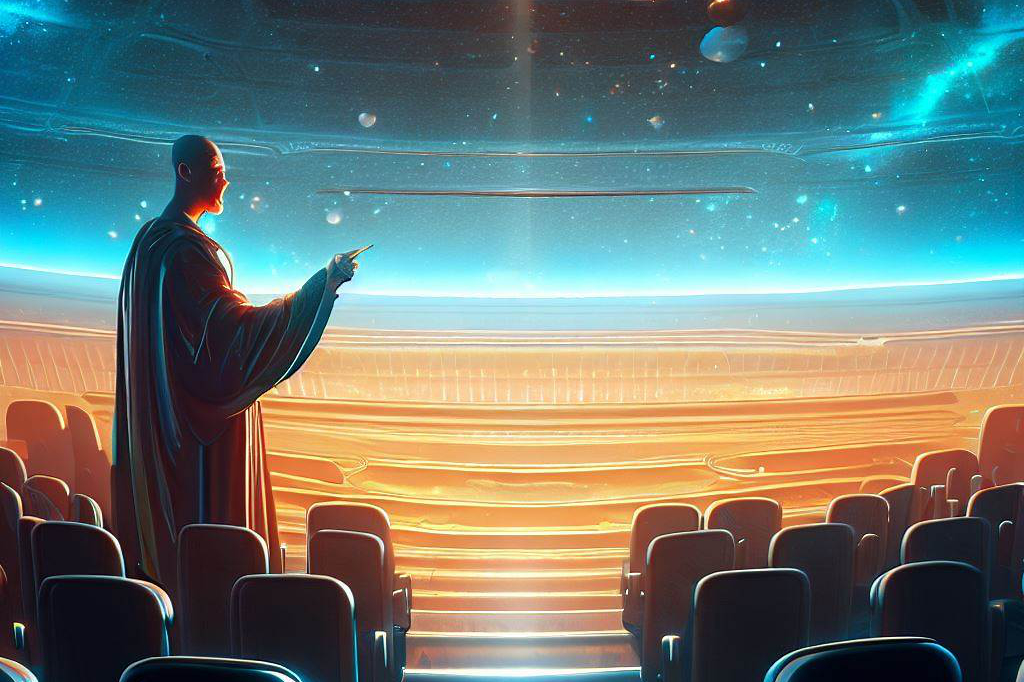
Despite seemingly insurmountable challenges facing humanity today – such as climate change – there is hope that emerging technologies like those used in space exploration could help us overcome them. Philosophical inquiry provides us with an opportunity to reflect on how these technologies can be used ethically and responsibly by humankind for continued progress.
By prioritizing philosophy and critical thinking in shaping space exploration, we can be confident that our endeavors will yield results that positively impact not just humanity but the entire universe. Therefore, it is worth investing resources and time to ensure that philosophical inquiry remains an integral part of space exploration.

C M, a seasoned editor, journalist, and consultant, is deeply fascinated by the convergence of technology, space, and the future of humanity.
With a particular interest in transhumanity, futurology, and the philosophical and ethical dimensions of these domains, C M serves as the lead contributor to SpaceSpotlight and TranscendSphere.
When not penning insightful articles on these rapidly evolving fields, C M indulges in their love for podcasts and books, proudly embracing their status as a ‘Happy Nerd Extraordinaire!’
